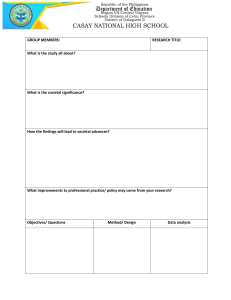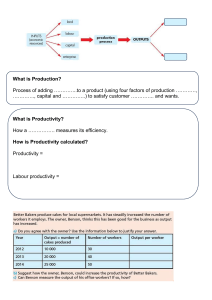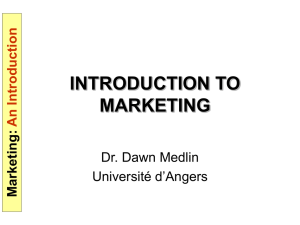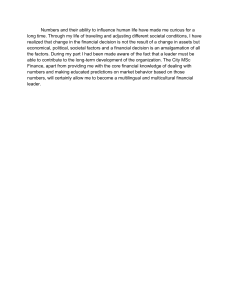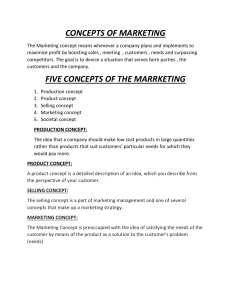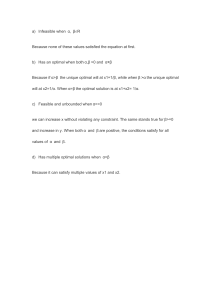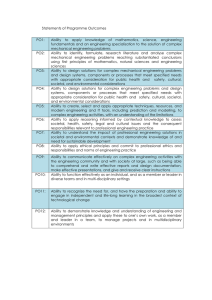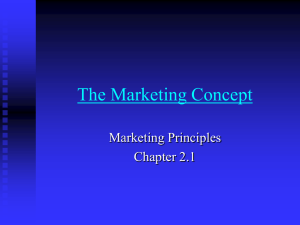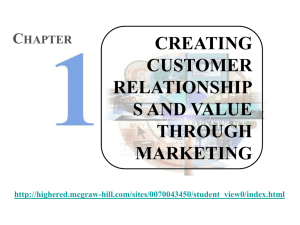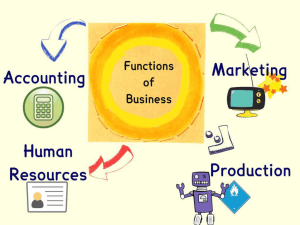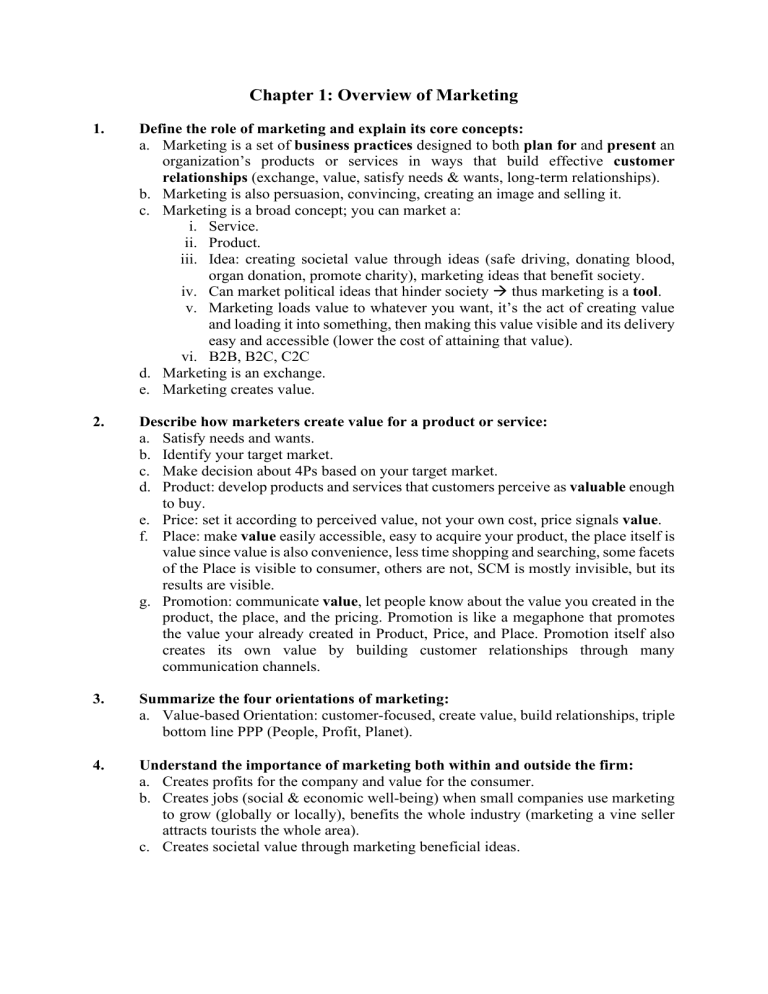
Chapter 1: Overview of Marketing 1. Define the role of marketing and explain its core concepts: a. Marketing is a set of business practices designed to both plan for and present an organization’s products or services in ways that build effective customer relationships (exchange, value, satisfy needs & wants, long-term relationships). b. Marketing is also persuasion, convincing, creating an image and selling it. c. Marketing is a broad concept; you can market a: i. Service. ii. Product. iii. Idea: creating societal value through ideas (safe driving, donating blood, organ donation, promote charity), marketing ideas that benefit society. iv. Can market political ideas that hinder society thus marketing is a tool. v. Marketing loads value to whatever you want, it’s the act of creating value and loading it into something, then making this value visible and its delivery easy and accessible (lower the cost of attaining that value). vi. B2B, B2C, C2C d. Marketing is an exchange. e. Marketing creates value. 2. Describe how marketers create value for a product or service: a. Satisfy needs and wants. b. Identify your target market. c. Make decision about 4Ps based on your target market. d. Product: develop products and services that customers perceive as valuable enough to buy. e. Price: set it according to perceived value, not your own cost, price signals value. f. Place: make value easily accessible, easy to acquire your product, the place itself is value since value is also convenience, less time shopping and searching, some facets of the Place is visible to consumer, others are not, SCM is mostly invisible, but its results are visible. g. Promotion: communicate value, let people know about the value you created in the product, the place, and the pricing. Promotion is like a megaphone that promotes the value your already created in Product, Price, and Place. Promotion itself also creates its own value by building customer relationships through many communication channels. 3. Summarize the four orientations of marketing: a. Value-based Orientation: customer-focused, create value, build relationships, triple bottom line PPP (People, Profit, Planet). 4. Understand the importance of marketing both within and outside the firm: a. Creates profits for the company and value for the consumer. b. Creates jobs (social & economic well-being) when small companies use marketing to grow (globally or locally), benefits the whole industry (marketing a vine seller attracts tourists the whole area). c. Creates societal value through marketing beneficial ideas.
